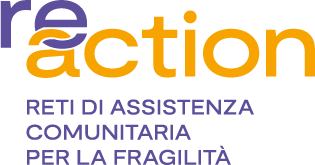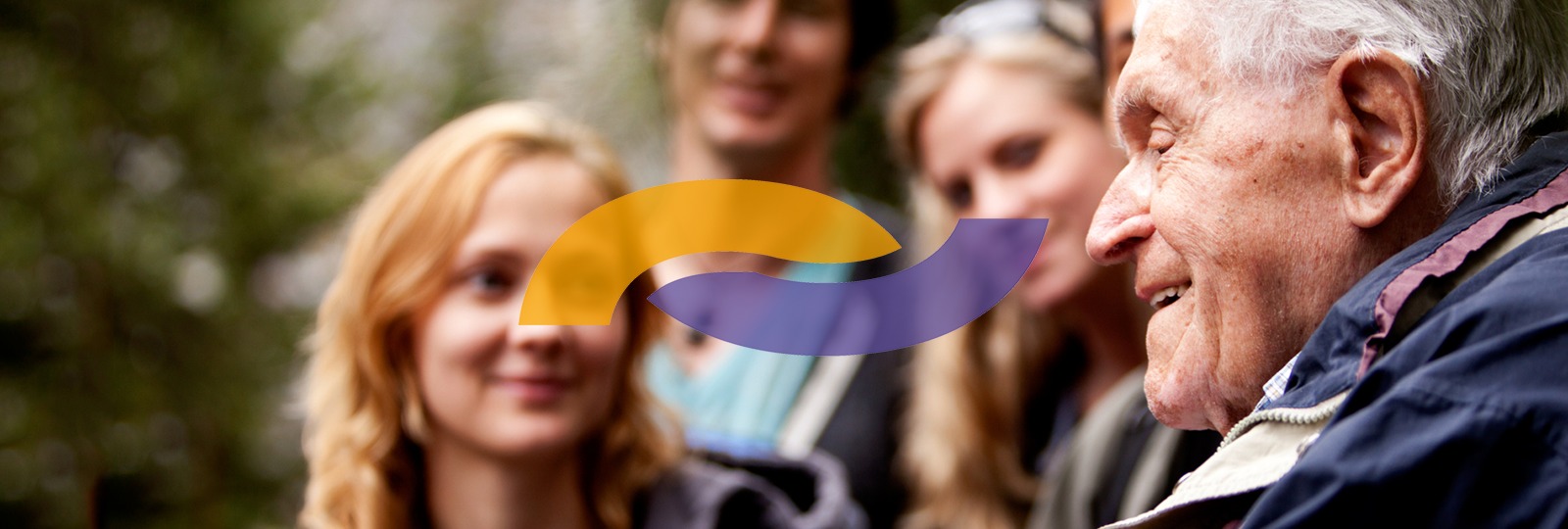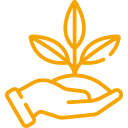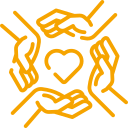

THE PROJECT
We want to allow the frail older person living in small towns and mountain communities to continue to live in health, in their own home, independently but not alone, with the help of the community network and local social and health services.

According to the World Health Organization, in less than 20 years global life expectancy has increased by an average of over 6 years. The populations of Italy and Switzerland are among the ones who live the longest, with a life expectancy of over 83 years.
The global aging phenomenon has increased the demand for assistance services and the need for social inclusion. To respond to these needs in an efficient and sustainable way, guaranteeing the older person the most independence possible and a better quality of life, support from the entire surrounding community is necessary.
Starting from a context analysis to help identify and segment the social and health needs, the project will the define the specific intervention strategies to be coordinated by the IFeC. The nurses will benefit from a training course, the older persons will be supported by the use of home digital technology, and all the services available locally will be integrated through a community welfare network.
The work of WP1 aims at ensuring proper technical and administrative coordination as well as cross-border management. This will be done through a series of integrated and iterative phases involving all partners.
PHASES OF THE PROJECT
The project includes 5 Work Packages (WP), related to 5 fundamental areas:
WP1 – Coordination and management
December 2020 – November 2022
Ensure proper technical and administrative coordination and cross-border management, through a series of integrated and iterative phases involving all partners.
WP2 – Communication
December 2020 – November 2022
Plan the project communication for the general public. Besides the communication strategy and its implementation, WP2 also includes event organization and social media management.
WP3 – Local area analysis and definition of action strategies
December 2020 – June 2021
This WP is divided into several stages:
The first stage involves the adoption of a shared method of data collection for: the social and health needs of the frail older person, the services delivered by the partners related to the project scope (e.g., the Family and Community Health Nurse, Integrated Home Assistance, Single Access Point for the Italian side), and the ongoing services or projects related to the quality of life of elderly residents living in their own homes.
The second stage relates to data collection in the areas participating in the project.
The third stage involves data analysis to compare the different territories, integrating the data with the information already collected in the preliminary stage.
Next, identifying and segmenting needs will make it possible to identify progressive levels of care and assistance on the basis of:
- the services currently available in the area, in order to optimize the network
- community responses to the needs of the aging population.
Specific intervention strategies will be identified for each category.
WP4 – Implementing experimental interventions
February 2021 – November 2022
Experimental interventions refer to the previously identified action strategies, supported by the network development and use of technological devices. WP2 involves various phases:
- Activation of joint training courses for the Family and Community Health Nurse (IFec), working on both sides of the border, in order for them to gain specific expertise on health education for the elderly as well as adopt lifestyle monitoring tools. The purpose of the training is also to facilitate opportunities for professional exchange, as well as facilitate the implementation of shared action strategies.
- Developing a proximity network to support the older person. This is fundamental for the smooth functioning of the project and for detecting conditions of frailty, chronicity and disability early on. The construction of the network is carried out on two levels: the local network, to support active aging, which is coordinated by the IFeC, and the network for integrating social and health services into primary care.
The local network, coordinated by the IFeC, wants to develop a synergy of cooperation to support active aging and the elderly population (e.g., community tutors, etc.) and reinforce informal help networks. This will be possible through dialogue between non-public subjects (pharmacies, small retailers, social welfare cooperatives, religious organizations, volunteer associations, etc.), the IFec, and Family Doctors.
The network that integrates social and health services into primary care on both sides of the border involves Family and Community Health Nurses, General and Family Practitioners, Integrated Home Assistance, Social Workers, Home Care and various points of access to the social and healthcare system. There will be work groups, systems that reward collaboration between professionals, and the adoption of new digital technology.
WP5 – Project evaluation
December 2020 – November 2022
A partner outside the cooperation area (Torino University) will carry out the process evaluation (compliance with the time schedule, established initial objectives, and obtained results) and an impact assessment to measure the outcome of REACtion.
WP Covid
In consideration of the complexities emerged with the COVID 19 pandemic, there is an urgent call to redefine the needs of social and health professionals in the dynamics of care relationships with the frail elderly, both on the Italian and Swiss front.
The COVID WP offers a multidisciplinary training for social and health care professionals and the possibility to take part in an innovative serius game, a virtual simulation environment created ad hoc for professionals to practice in safety, recreating experiences of daily practice.
There will also be activities of detection of social and health services, activated during the pandemic in the territories affected by the REACtion project (and neighboring), and public engagement activities managed by UPO.
OUR VALUES
Equity
The REACtion Project ensures diversified assistance for segments of the population with diverse social and health needs (the concept of vertical equity). The project also seeks to mitigate existing disparities and facilitates inclusion opportunities for the most vulnerable individuals.
 Sustainability
Sustainability
The REACtion Project ensures social sustainability through a multi-level network system (local and integrated services). Social sustainability refers to the opportunity to live in an environment that can satisfy the needs of the elderly and their caregivers, making it easier for older persons to fulfil their potential.
 Partecipation
Partecipation
Those involved include persons over 65 years old and the people who provide their care and assistance (caregivers). Also involved are Family and Community Health Nurses (IFeC) operating in the Municipalities of the “Casa della Salute” in Santhià and the Southern and Urban Districts of Novara, on the Italian side, and those operating in the Locarno and Vallemaggia Districts, on the Swiss side.
 Innovation
Innovation
The REACtion Project makes use of innovative technology that allows the elderly and their caregivers to connect with people close to them as well as the IFeC. Furthermore, the new technology adopted by REACtion guarantees a fast and efficient exchange of information between the proximity network, home assistance network, and social and health service network.
Contacts
To get in touch with the project leaders, you can send an email to reaction.project@uniupo.it
Operation co-financed by the European Union, European Regional Development Fund, Italian government, Swiss Confederation, and Intterg V-A Italy-Swizerland Co-operation Programme


 Sustainability
Sustainability Partecipation
Partecipation Innovation
Innovation